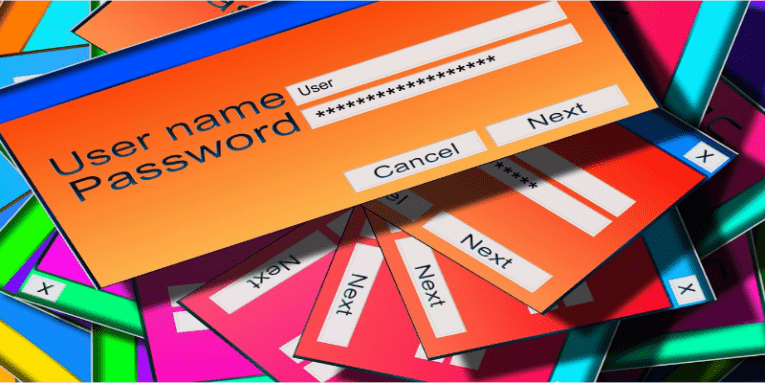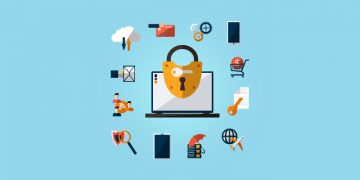Top 3 Password Security Tips for Those Who Share Computers and Devices

Not all households can afford separate PCs or other devices for every individual. As a consequence, they are forced to share devices among themselves or use public computers. It's totally fine until proper measures to avoid privacy-related issues are taken. You would not want your friend, daddy, or granny to access those embarrassing photos in a bikini, read your private messages, or log into your social media accounts without your knowledge, would you? Just as we thought. Your inner circle is not the only one that might be able to access your passwords and other personal information. For some, sharing private information with family members is not the end of the world (bonds are built on trust, they say), but we are sure we could not find a person who would be very happy knowing that it has been accessed by complete strangers. This is exactly what can happen if you carelessly use public computers, be it a library or a school computer.
The privacy violation is not the only problem you might experience. According to Emma Kavanagh, an information security consultant, people using public computers are "at risk for attack in both the online and offline areas." Passwords remain the most-wanted pieces of information of all since they can unlock doors leading to stacks of personal information, so we will primarily focus on how to protect passwords when sharing devices in this blog post. We know well that you do not want to become one of those users who have experienced an account hack at least once in their lives.
How can I protect passwords when sharing devices?
- Always keep passwords hidden
People have so many passwords that they can simply not remember them all when needed. Those who do not use password managers, tend to reuse passwords across multiple devices because they simply want to be in control of their passwords all the time, whereas others keep them listed on a sheet of paper or an unprotected file on their computers. The latter is an ancient but still popular way to handle passwords. If you do that too and, even worse, share your PC or another device with other people at the same time, you must quit that bad habit immediately. A yellow sticky note glued on a shared device is not a safe way to keep passwords either.
John Simpson from Consumer Watchdog says that "many people forget that convenience comes at a price." Of course, it does not mean that the password handling must necessarily be something extremely tiresome. A trusted password manager that keeps all passwords hidden in a password-protected vault is a contemporary way of handling passwords, but we suspect that we could not convince more old-school users to switch to it. If you are eager to stick to hiding passwords in a text file on your device, you should at least password-protect it so that people you share the device with could not access it. An alternative way to hide your passwords would be to encrypt that private file or simply make it invisible so that no people could find/access it.
- Do not let a web browser automatically store passwords on a shared device
A bunch of users let their web browsers remember their login credentials so that they would not require them in the future and thus they could access their accounts quicker. No doubt this sounds convenient, but it is surely not the best practice when sharing devices, to say the least. Your granny will probably not go to extract those saved passwords to spy on you, but we would not be so sure that your colleagues or your coursemates would not get overwhelmed by curiosity. It would be best not to share personal devices at all, but we understand that it is not always possible, so we suggest that you at least make sure that your passwords are hidden from prying eyes.
Speaking about web browsers further, you should always Sign Out from all the services you use before you lend your PC or another device because you might stay logged in even if you close the browser. It will be a piece of cake for unauthorized people to access your private information in such a case. If you are too busy or too lazy to sign out of all your accounts, manage saved details, or you simply do not want to find other people's awkward searches, it would be best to create a separate Guest account. You can create individual accounts for family members you have to share your device with as well. In fact, this is one of the easiest and quickest ways to protect passwords when sharing devices.
- Be careful when sharing "hidden" passwords between computers
Let's talk about sharing from a slightly different perspective. It is no longer a secret that people buy new devices every few years and throw out those old ones without mercy. The only thing we do not want to lose is our private data, so we transfer it to that brand new device before saying it goodbye. Sharing data between computers is not as simple as it might seem to be at first. Theoretically, it might be stolen in transit by hackers monitoring your network. If you are going to transfer personal details, e.g. passwords, it would be best that you setup a virtual private network (VPN) first. It will help you to share the information between devices safely by encrypting all of it. As a consequence, even if the private data is intercepted, hackers could not read it and make use of it. A VPN is a must for those who work remotely or simply connect to networks that are not very secure, specialists say. Of course, it would be best that you do not practice keeping private information unprotected at all. As mentioned previously, passwords "hidden" in folders or plain text files are far from being secure no matter what you do.
It might seem that a shared PC or a device is protected enough, but, unfortunately, there are no security tools that can protect users from themselves. As the saying goes, humans are the weakest link in the security supply chain. Always make sure you take standard security measures on all devices you use, no matter if it is your own PC, a device you share with your significant other, or a library computer, especially when we speak about passwords. Also, even if you already have your tinfoil hat on, do not forget to enable your system's firewall, update the OS the device runs on regularly, and always set strong passwords whether you share your PC/tablet/smartphone with others or not.








